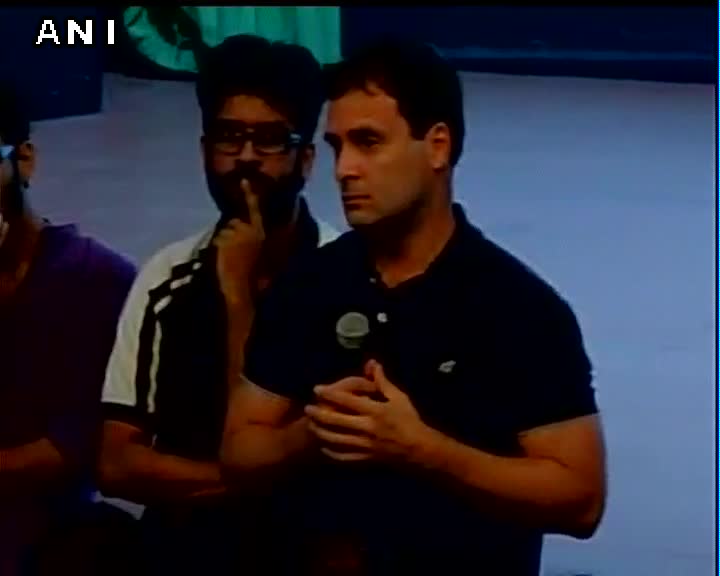
Gandhi stated that the Congress party believes in a more equitable allocation of resources to ensure broader societal benefits. He described the BJP's approach as concentrating resources at the top, with the expectation that benefits will eventually "triple down" to the wider population. This perspective, he suggested, leads to a less inclusive economic environment.
Addressing the students, Gandhi expressed concerns about India's current education system, describing it as overly restrictive and narrowly focused. He criticized the system for emphasizing a limited set of professions, such as engineering and medicine, which he argued cannot accommodate the aspirations of the entire population. Gandhi advocated for a more expansive educational framework that encourages creativity and allows students to pursue diverse career paths.
He also underscored the importance of government investment in education, arguing against the privatization of educational institutions. Gandhi contended that quality education should be a guaranteed provision by the state, and that introducing financial incentives through privatization does not necessarily lead to better educational outcomes. He pointed to premier government institutions, including IIT Madras, as exemplars of quality education resulting from public funding.
In response to Gandhi's remarks, Amit Malviya, head of the BJP's Information Technology cell, defended the current government's educational policies. Malviya highlighted significant increases in education funding under Prime Minister Narendra Modi's administration, noting that the budget allocation for education nearly doubled from ₹79,451 crore in the 2013-14 fiscal year to ₹1.48 lakh crore in 2024-25. He also cited the establishment of new Indian Institutes of Technology (IITs), Indian Institutes of Management (IIMs), and universities, as well as the introduction of the National Education Policy, as evidence of the government's commitment to enhancing educational infrastructure and access.
Malviya further noted that a record 71 Indian universities now feature in global rankings, indicating an improvement in the quality of higher education. He also mentioned significant growth in enrollment among Scheduled Tribe and Other Backward Class students, suggesting that the government's policies have contributed to increased educational opportunities for historically marginalized communities.
During the discussion, Gandhi also touched upon India's international relations, particularly the strategic balancing act between China and the United States. He emphasized the importance of navigating this complex geopolitical landscape intelligently to maximize India's benefits without becoming entangled in major conflicts. Gandhi suggested that India's unique position allows it to leverage relationships with both superpowers to its advantage, provided it maintains a careful and strategic approach.
The interaction at IIT Madras is part of Gandhi's broader engagement with educational institutions and youth across the country. These dialogues aim to address pressing issues in education, economic policy, and international relations, fostering a platform for open discussion and the exchange of ideas. Gandhi's emphasis on equitable resource distribution and government investment in education reflects the Congress party's policy priorities as it seeks to distinguish itself from the BJP's economic strategies.
The differing perspectives between the Congress and the BJP on economic growth and resource allocation highlight a fundamental debate in India's policy discourse. While the Congress party advocates for a more equitable distribution of resources to achieve inclusive growth, the BJP emphasizes rapid economic expansion with the expectation that benefits will percolate through society. This ongoing debate continues to shape the political landscape as both parties vie to present their visions for India's development.
Gandhi's critique of the current education system and his call for increased public funding resonate with concerns about accessibility and quality in Indian education. His remarks suggest a push for reforms that broaden opportunities beyond traditional career paths, encouraging a more diverse and inclusive approach to education that aligns with the varied aspirations of India's youth.
